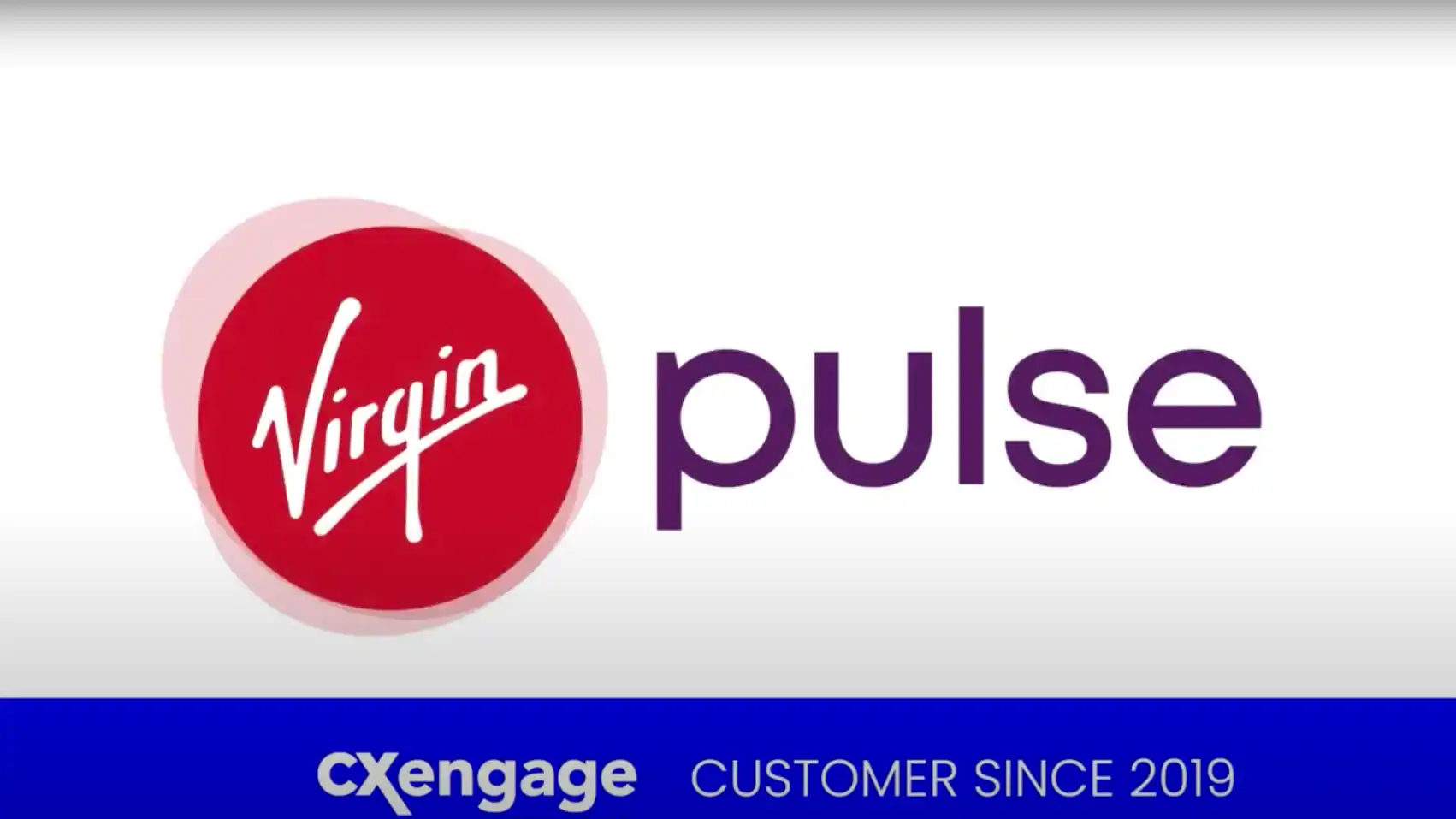So you’re considering a move to the cloud — a cloud contact center, that is. You’ve had on-premises technology for years, and while it’s worked well and served its purpose, you’re ready for something more effective, efficient and innovative. Let’s begin with a quick definition of “cloud contact center” (sometimes interchangeably called “cloud call center” or “CCaaS”) to aid in your decision-making.
What is a cloud contact center?
A cloud contact center is truly the hub of an enterprise, where nearly all inbound and outbound customer interactions are handled. Cloud call center platforms are built and hosted on a cloud provider, Amazon Web Services for example, and connect customer service teams and agents to their customers through voice, email, social media, chat and other channels.
The cloud is a practical, strategic option for businesses to transform their approach to customer experience, by providing access to tools and services needed to effectively communicate in our web-based world.
8 reasons to move from on-premises to a cloud contact center
The cloud offers a number of appealing features, and you’re certainly not alone in your desire to adopt cloud solutions. Still, there may be stakeholders in your organization who aren’t convinced about the change quite yet. If so, here are eight compelling reasons to move from an on-premises contact center over to a cloud solution.
Fast deployment
One of the biggest draws of cloud call centers is their speed of deployment. You just need to select the right service provider, work with them on a migration plan, and you’ll be ready to enable agents in days rather than weeks. There’s no need for ordering equipment or waiting on installation before you get started.
Predictable, all-in pricing
Because cloud services provide subscription-based access to a platform, you won’t run into any hidden hardware or maintenance costs — you only pay for flat-rate cloud licenses, not upkeep. For this reason, your organization will enjoy significant savings without compromising on quality of service or sacrificing customer satisfaction.
Scalability
Cloud contact center solutions allow organizations to expand usage to more agents or geographies as needed, but don’t require additional expenses or tedious updates. This scalability means you can increase capacity during busy seasons and then pull back when things slow down again, seamlessly responding to customer and business needs at all times.
Customization to meet every need
Customization and flexibility are key in delivering superior call center customer service, and with the help of cloud contact center solutions, there are endless ways to offer personalized service. You can customize a single feature, communication channel or your entire dashboard; you’re in control of how everything looks, feels and functions.
Work from anywhere
Cloud solutions are ideal for organizations that prioritize remote work and recognize the value of distributed teams. With the cloud, customer support agents can be located anywhere, from a central office to a work-from-home setup, or possibly a hybrid combination of the two. This opportunity translates to unmatched autonomy, access to talent and enhanced workflows for your team.
Security? Check.
Call center software with cloud services have layers of built-in security to protect company and customer data, as well as guard the platforms themselves. What’s more, cloud security is likely even stronger than traditional on-prem security measures, since updates occur on a consistent basis.
Integration with CRM, WFM and other software
Fortunately, there’s no need to upgrade or swap out all of your existing business-critical software and systems when you make the switch to a cloud contact center. You can easily integrate the software you’re already comfortable navigating, like Salesforce or Zendesk for CRM, Key IVR for secure payment, and various workforce management, UCaaS, PBX, IT help desk and business intelligence solutions, since they’ll likely be compatible with whichever cloud platform you choose.
Automatic updates
Automatic updates are a gift when you’re working with a packed schedule and a long to-do list. Another perk of cloud contact center technology is it doesn’t require you to set reminders or invest time to update your software — it’s all taken care of for you, so you can focus on more important business at hand.
5 signs it’s time to move to a cloud contact center solution
Lower costs, increased flexibility, limitless scale and easy integration are just a few of the reasons organizations have found themselves transitioning to the cloud. But does all of this mean you should be next? If your business is struggling with whether to stick with your current call center solution, here are five signs it might be time to trade it in for something new.
Your contact center solution is costing too much
A great indication you should move to the cloud is when costs become too steep to update your on-premises solution. Not only will your customer care agents and customers grow frustrated while you’re waiting to afford the latest innovations, but you’ll have to make do with inferior functionality while your competitors continue evolving.
With the cloud, you get access to the newest technology and regular updates at no additional cost to you. That’s why cloud contact center platforms operate so smoothly on the cutting edge with underinterrupted uptime, and why customers and agents alike will feel more satisfied using your implementation.
The customer experience is suffering
If you run into a situation with high agent attrition and where customers are hanging up, you’ll definitely want to figure out why. When you look at your customer lifetime value and revenue as it’s tied to customer satisfaction, do you see a decline (or plateau) in your Net Promoter Score (NPS) or overall customer satisfaction (CSAT)?
Whenever those numbers are trending down or flattening, there’s the potential that your contact center technology has become a barrier in maintaining quality customer relationships and providing outstanding customer service, thus impeding your ability to continually improve your customer experience strategy.
Your contact center can’t evolve
It goes without saying that you get the most from your contact center solution when it’s connected to other core business programs. When you find yourself boxed in because your contact center can’t integrate with your CRM, workforce management or other systems, it’s wise to consider an alternative cloud solution instead.
Be sure to look for a cloud contact center that operates on an open platform, with seamless integrations to the software your organization already relies on, so you can take full advantage of future innovations on both ends.
You lack much-needed flexibility
On-premises contact centers naturally limit flexibility, since they expect agents to be in a brick-and-mortar location, rather than supporting a team of at-home workers. This can regrettably make you less appealing as an employer, and can cause issues when your agents are unable to be physically present in the office.
By contrast, a cloud contact center allows for a virtual workforce from Day 1, by way of a simple internet connection and browser-based agent interface. The cloud lets your organization scale up or down as needed, all while controlling costs. In other words, you’ll benefit from flexibility, scalability and predictability.
You’re wasting contact center resources
With an on-premises contact center, your organization builds for maximum capacity and buys based on the worst-case scenario. And yet, you may only operate at your highest capacity for a few months (or even a few weeks) out of each year. This over-preparedness and over-provisioning can put a massive strain on your technical resources as well as your budget.
By incorporating the cloud into your customer engagement strategy, you can eliminate this waste and stress, and save by flexing up or down to meet seasonal operating requirements.
3 companies that found success moving to the cloud
The inclusion of cloud alternatives in nearly every contact center decision has become the norm in the last few years. Thousands of organizations of all sizes are now choosing contact center-as-a-service (CCaaS), while on-premises solutions are on a steady decline. One such CCaaS solution is Lifesize CxEngage, which delivers the cloud-native flexibility, scalability and reliability that modern customer service organizations so desperately need.
The directional change is clear, and these three companies are prime examples of the positive outcomes that happen when contact centers move to the cloud.
Gravie
Gravie is a self-described startup, working to make health benefits more accessible and affordable for all employers and employees. Gravie’s goal is to control costs and empower people to make their own choices, and they’ve been able to do that thanks to their reliance on Lifesize’s cloud contact center platform, CxEngage. By integrating Lifesize CxEngage with their existing CRM system, Gravie is more proactive with their clients and delivers exceptional customer support with every call.
City Facilities Management
City FM Australia provides innovative solutions for facilities management, ensuring successful, long-term results for its retail and industrial partners. Thirty-five years after they started, City FM now employs more than 13,000 people, with divisions across five continents. And by implementing Lifesize’s cloud solutions, City FM is better able to support their partner businesses, and can easily handle any in-store issues that are bound to come up.
Global Food Manufacturer
A multi-billion-dollar food processing company distributes its products to more than 50 countries around the world. The company uses cloud contact centers for a variety of its daily operations, like consumer customer service and dealer communications. By partnering with Lifesize, they’ve had an incredible boost in their KPIs related to answering calls, as well as improved administration in both local and international call centers.
Move to the cloud with Lifesize CxEngage
Organizations all over the globe are transitioning to using cloud contact center software and experiencing tremendous growth and gains in the process. With cloud solutions like Lifesize CxEngage, your organization can offer more streamlined customer experience, save on costs and resources, make changes or scale up without the need for IT support, customize as many features as you’d like, integrate with other information systems and so much more. Lifesize is here to help your organization make the switch to a cloud contact center, and ultimately set you up for greater business success.






